Special Sessions
Interdisciplinary Lectures
-
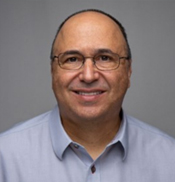 Andrew DesslerTexas Center for Climate Studies, Texas A&M University, College Station, USA
Andrew DesslerTexas Center for Climate Studies, Texas A&M University, College Station, USA -
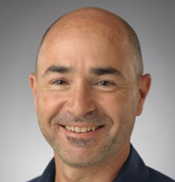 Sylvain CostesNASA Ames Research Center, Moffett Field, CA, USA
Sylvain CostesNASA Ames Research Center, Moffett Field, CA, USA -
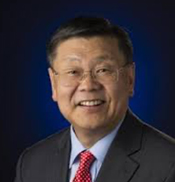 John LeeVice Administrator of Mission Directorates, KASA, Republic of Korea
John LeeVice Administrator of Mission Directorates, KASA, Republic of Korea -
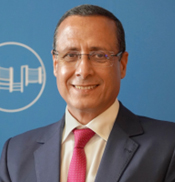 Driss El HadaniUnited Nations Office for Outer Space Affairs, Vienna, Austria
Driss El HadaniUnited Nations Office for Outer Space Affairs, Vienna, Austria -
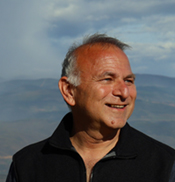 Sami SolankiMax-Planck-Institut für Sonnensystemforschung, Göttingen, Germany
Sami SolankiMax-Planck-Institut für Sonnensystemforschung, Göttingen, Germany -
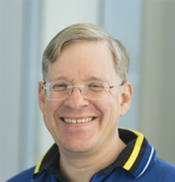 Cole MillerDepartment of Astronomy, University of Maryland at College Park, USA
Cole MillerDepartment of Astronomy, University of Maryland at College Park, USA -
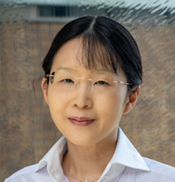 Kanako SekiDepartment of Earth and Planetary Science, Graduate School of Science, University of Tokyo, Japan
Kanako SekiDepartment of Earth and Planetary Science, Graduate School of Science, University of Tokyo, Japan
“Climate Change - On the Brink of Disaster and the Brink of Salvation”
Andrew Dessler
Sunday, 14 July, 14:00, Room 205, Convention Hall
“Unlocking the Secrets of Space Biology: From the Twin Study to Groundbreaking Open Science Discoveries”
Sylvain Costes
Sunday, 14 July, 14:25, Room 205, Convention Hall
“Introduction of the new Korea Aerospace Administration (KASA)”
John Lee
Wednesday, 17 July, 14:00, Room 205, Convention Hall
“The Importance of Space Research in UN COPUOS Activities and COSPAR's Contribution to It”
Driss El Hadani
Wednesday, 17 July, 14:15, Room 205, Convention Hall
“Our Sparkling Star: The Sun’s Magnetic Field, Activity and Variability”
Sami Solanki
Wednesday, 17 July, 14:30, Room 205, Convention Hall
“The Physics of Neutron Stars”
Cole Miller
Friday, 19 July, 14:00, Room 205, Convention Hall
“Solar-planetary Environment and its Habitability: Insights from Atmospheric Escape Studies”
Kanako Seki
Friday, 19 July, 14:25, Room 205, Convention Hall
Pioneering the Future of Space Industry & Research
Monday, 15 July, 14:00 - 15:00, Auditorium
“Dare Mighty Things Together”
Laurie Leshin
Director, Jet Propulsion Laboratory, USA
“KAI, Industry’s Role in Transforming Space Exploration into Space Economy”
Goo-Young Kang
CEO, Korea Aerospace Industries, Ltd., Republic of Korea
“Multiplanetary Human Life Enabler”
Jay Kim
CEO, BORYUNG, Republic of Korea
COSPAR Opening and Award Ceremony, Part 1
Monday, 15 July, 15:00 - 16:30, Auditorium
Roundtable of Space Agency Leaders
Monday, 15 July, 17:00 - 18:30, Auditorium
Topics:
Overview of space agency research programs;
Addressing climate change through space contributions;
Updates on recent and anticipated planetary and astronomy space missions;
Opportunities and challenges of emerging private space actors;
Sustainable use and regulation of outer space and environmental stewardship;
Role of small satellites in space research, and support to COSPAR’s constellation projects.
Participants confirmed to date:
Pascale Ehrenfreund, COSPAR President, Moderator
Youngbin Yoon, Administrator, Korea AeroSpace Administration (KASA)
Anil Bhardwaj, Director, Physical Research Laboratory (PRL), India
Mugnuolo Raffaele, Scientific Directorate of Agenzia Spaziale Italiana (ASI)
Li Guoping, Chief Engineer, China National Space Administration (CNSA)
Hitoshi Kuninaka, Director General, Institute of Space and Astronautical Science (ISAS), Japan Aerospace Exploration Agency (JAXA)
Pam Melroy, Deputy Administrator, National Aeronautics and Space Administration (NASA)
Ahmed belhoul, Chairman, United Arab Emirates Space Agency (UAESA)
COSPAR Opening Reception and Award Ceremony, Part 2
Monday, 15 July, 18:30, Room 301, Convention Hall
The New COSPAR Community-Driven Space-Weather Roadmap: Its Context on the Global Stage
Tuesday, 16 July, 14:00 – 15:00, Room 205, Convention Hall
This special panel discussion will present the high-level summary of the community-driven COSPAR Space-Weather Roadmap highlighting key recommendations across the areas of space-weather impacts, collaboration, future opportunities, and collaborative-working, both within COSPAR, and more globally. This special session is envisaged to have a number of panellists that contributed to the foundations of the updated roadmap as well as panellists representing national agencies and international organisations such as UNOOSA, WMO, and ISES. In addition, ideas and thoughts on achieving the outcomes and recommendations made in the roadmap will be covered in this special session to include the panel Q&A/discussions.
Broad topics for the panel discussion will include:
Lessons learned from broader community engagement in road mapping;
Increasing involvement of the wider community including citizen scientists in advancing space-weather capabilities; and
Strategically determining the focus areas for improved space-weather research and resilience at the local, national, regional, and global levels.
Agenda:
4 minutes - “Opening and Introductions to the Panellists”, by Mario M. Bisi.
12 minutes - “Highlights from the New COSPAR Space-Weather Roadmap”, by Masha Kuznetsova.
12 minutes - Panellists brief views on the importance of the new COSPAR Space-Weather Roadmap.
30 minutes - Q&A with the panellists, Chaired by Mario M. Bisi.
2 minutes - Summary and closing remarks, by Mario M. Bisi.
Panellists:
Masha Kuznetsova - COSPAR ISWAT and PSW Chair
Joe Westlake - NASA, USA
Jussi Luntama - ESA
Shafa Gadimova - UNOOSA
Mamoru Ishii - ISES
Jesse Andries - WMO
Broad topics for the panel discussion will include:
Lessons learned from broader community engagement in road mapping;
Increasing involvement of the wider community including citizen scientists in advancing space-weather capabilities; and
Strategically determining the focus areas for improved space-weather research and resilience at the local, national, regional, and global levels.
Agenda:
4 minutes - “Opening and Introductions to the Panellists”, by Mario M. Bisi.
12 minutes - “Highlights from the New COSPAR Space-Weather Roadmap”, by Masha Kuznetsova.
12 minutes - Panellists brief views on the importance of the new COSPAR Space-Weather Roadmap.
30 minutes - Q&A with the panellists, Chaired by Mario M. Bisi.
2 minutes - Summary and closing remarks, by Mario M. Bisi.
Panellists:
Masha Kuznetsova - COSPAR ISWAT and PSW Chair
Joe Westlake - NASA, USA
Jussi Luntama - ESA
Shafa Gadimova - UNOOSA
Mamoru Ishii - ISES
Jesse Andries - WMO
NASA and Public-Private Partnerships: A Fireside Chat to Share Perspectives on NASA Science
Tuesday, 16 July, 17:00 - 18:30, Room 301, Convention Hall
Join Dr. Nicky Fox, NASA Associate Administrator, Science Mission Directorate, and Mr. Andre’ Trotter, VP, Lockheed Martin Space as they discuss ongoing and future public-private partnerships that shape current and future NASA science missions. Speakers will discuss the future of NASA Science including Earth and climate science, astrophysics, heliophysics, planetary science, and biological and physical science in the context of a rapidly evolving space science landscape.
Inclusion, Diversity, Equity, and Accessibility (IDEA) Lunch Panel
Thursday, 18 July, 12:30 - 14:00, Room 301, Convention Hall
“Leveraging Psychological Safety as an IDEA Principle to Advance Scientific Discovery”
Join Leaders from NASA’s Jet Propulsion Laboratory and other global experts on the necessity for creating psychologically safe environments to ensure inclusion and open scientific expression. Often our notions of the creation of science are based on the historic “Eureka” moments of a single brilliant individual, be it Einstein, Marie Curie, or Newton. In reality much of science is conducted in teams. And yet, academia does very little to prepare our scientists for team leadership. To create high functioning, high performing teams, a critical component is psychological safety, a term coined by Professor Amy Edmondson of Harvard Business School. Psychological safety occurs when all individuals in the team feel safe to take risks and speak up without fear of shame or reprisal. In space science, some of the biggest “fails” have occurred when there was low psychological safety and team members were afraid to speak up.
The IDEA panel at COSPAR will examine how organizations are working to cultivate psychological safety, how gender, cultural, and social identity differences affect psychological safety, and ways of overcoming those challenges.
Participants confirmed to date:
Join Leaders from NASA’s Jet Propulsion Laboratory and other global experts on the necessity for creating psychologically safe environments to ensure inclusion and open scientific expression. Often our notions of the creation of science are based on the historic “Eureka” moments of a single brilliant individual, be it Einstein, Marie Curie, or Newton. In reality much of science is conducted in teams. And yet, academia does very little to prepare our scientists for team leadership. To create high functioning, high performing teams, a critical component is psychological safety, a term coined by Professor Amy Edmondson of Harvard Business School. Psychological safety occurs when all individuals in the team feel safe to take risks and speak up without fear of shame or reprisal. In space science, some of the biggest “fails” have occurred when there was low psychological safety and team members were afraid to speak up.
The IDEA panel at COSPAR will examine how organizations are working to cultivate psychological safety, how gender, cultural, and social identity differences affect psychological safety, and ways of overcoming those challenges.
Participants confirmed to date:
Laurie Leshin, JPL Director, USA - Moderator
Moogega Cooper, JPL, USA
David Korsmeyer, NASA Ames Research Center, USA
Young-sil Kwak, KASC, South Korea
Anna Sabaté, Space Faculty, Singapore
Mary Snitch, LM Space, USA
COSPAR Committee on Industry Relations Panel Discussion
Thursday, 18 July, 14:00 - 15:00, Room 205, Convention Hall
“Space 2050 – Our Future Shaped by Today’s Space Technology Advances”
What will the future of space look like in 2050? What technologies will be required to enable future capabilities in space and how close are we to creating them? Lockheed Martin Vice President, Commercial Civil Space, shares a vision for the future of space and showcases key technologies being developing to expand space missions and humanity beyond our home world. The 2050 vision invites discussion about the future of space in five areas: a “smart” world enabled by ubiquitous communications, extraplanetary operations, space logistics, mission operations command utilizing artificial intelligence and machine learning, and space defense to strengthen 21st Century Security. These areas dive deeper into dynamic mission environments and the emerging technological advancements necessary to operate productively and safely.
Confirmed participants:
Confirmed participants:
André Trotter, VP, LM Commercial Civil Space, Moderator, USA
Massimo Camparini, CEO of Thales Alenia Space, Italy
Dave Gallagher, Associate Director, Strategic Integration, NASA/Jet Propulsion Laboratory, USA
John Reed, Chief Technologist, ULA, USA
Ryo Yjiie, CTO, ISpace, Japan

